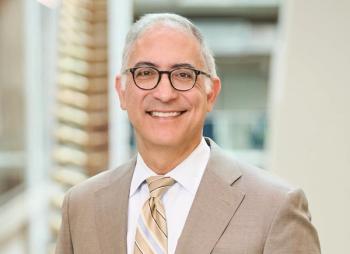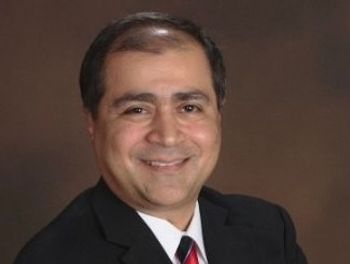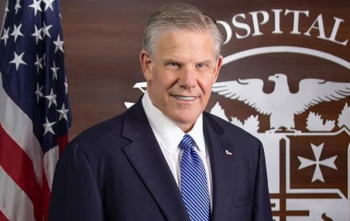
Hospitals, Healthcare Systems Must Reduce Carbon Emissions, Key Federal Official Says
Rachel Levine, U.S. assistant health secretary, said the health sector is a critical part of the effort to cut greenhouse gases. Federal officials are aiming for cooperation but there could be regulatory steps to encourage compliance.
America’s hospitals and healthcare systems are going to have to reduce greenhouse gas emissions, according to a key federal official.
Rachel Levine, assistant secretary of health in the U.S. Department of Health and Human Services, said hospitals are going to be a key component of the federal government’s efforts to combat climate change. She discussed the intersection of climate change and healthcare systems in a briefing with reporters organized by the Alliance for Health Policy on Nov. 4.
The healthcare sector accounts for 8.5% of America’s carbon emissions, Levine said.
“It’s critically important to the president’s goal of meeting the economy-wide greenhouse gas reductions by 2030 to deal with the health sector,” Levine said.
On Saturday, Levine appeared at the United Nations climate summit in Scotland and affirmed the U.S. government’s commitment to reducing carbon emissions in the healthcare sector.
President Joe Biden’s administration has been meeting with healthcare leaders to discuss climate change and the need to reduce emissions. Levine said some healthcare leaders have expressed enthusiasm and understand the importance of addressing climate change.
It’s possible the health and human services department could employ its regulatory power to spur hospitals to reduce emissions, Levine said, but nothing has been decided. She stressed that federal officials are aiming to work cooperatively with the healthcare sector.
“We want to work with the health systems and we’re working to get buy-in,” Levine said.
“They realize the impact of climate change that it has now and is going to have in the future,” Levine said. “So I think a lot of these measures are going to be voluntary. I think a lot of them will actually help them in their bottom line.”
She didn’t specify any specific measures or programs but said the need for hospitals to curb emissions is clear.
Earlier this fall, the
Levine noted the health and human services department has recently created a new office dealing with the intersection of climate change and public health. She also said the office is examining ways on addressing climate change with an eye on health equity.
The federal government will be working with hospitals and healthcare systems to develop more resilience in dealing with the aftereffects of climate change. Levine said that would be done at a regional level, since different areas of the country face different challenges.
The west is dealing with more issues with heat and forest fires, while the south and eastern regions face the threats of sea rise and more potent hurricanes due to climate change, Levine said. She cited the example of how hospitals in Louisiana fared better against Hurricane Ida after the devastating lessons from Hurricane Katrina.
Climate change looms as a serious public health threat, Levine said. Deforestation could increase the risk of pandemics, she said.
“When you bring people into contact with animals they don’t usually see, that is a risk for something like pandemics,” Levine said.
Rising temperatures could also expand the risk of vector-borne diseases, such as the Zika virus and Lyme disease, Levine said.
“As we see ticks, as we see mosquitos spread because of our warming climate, that could increase the risk of the transmission of infections,” she said.
Biden selected Levine for the key post in his administration in January and she was confirmed by the U.S. Senate in March. She previously led the Pennsylvania Department of Health.
Last month, Levine was ceremonially sworn in as a four-star admiral in the U.S. Public Health Service Commissioned Corps. She became the nation’s first openly transgender four-star officer across any of the uniformed services of the United States.
In the press briefing, Levine said the federal government would be working to address health care equity for a number of vulnerable groups, including the LGBTQI+ community.







































